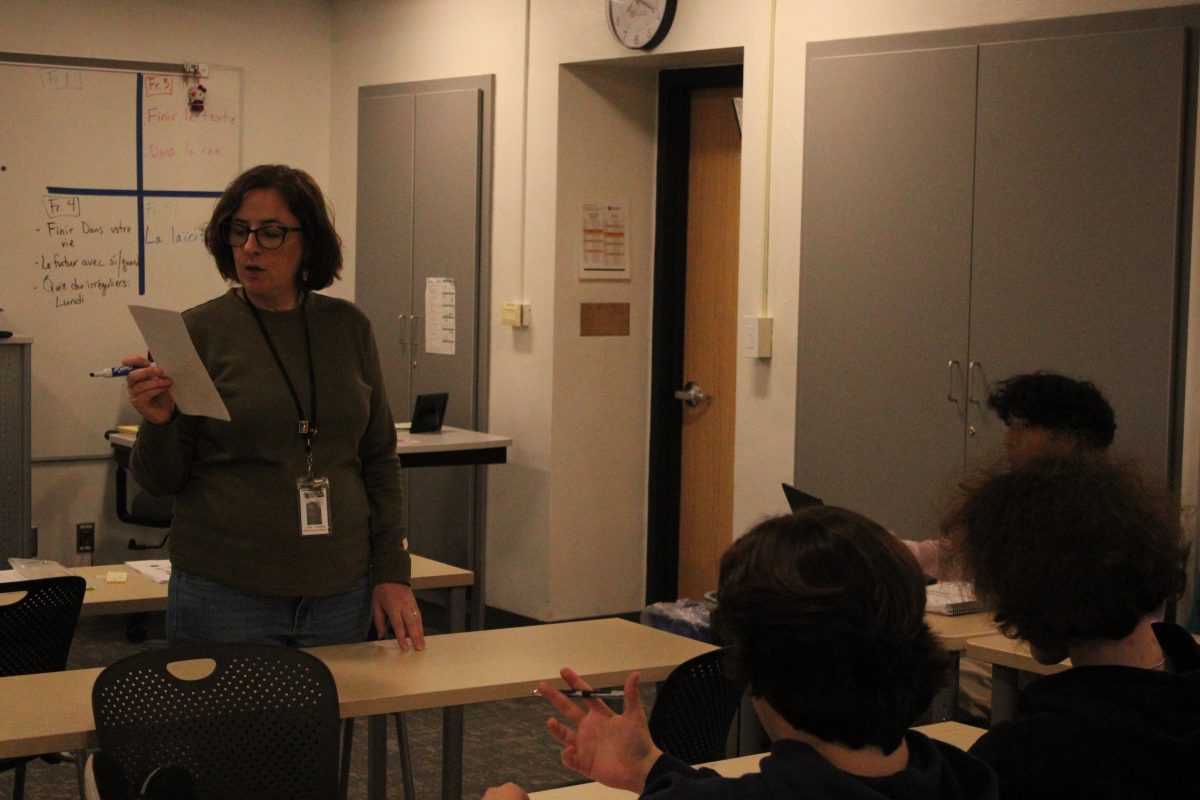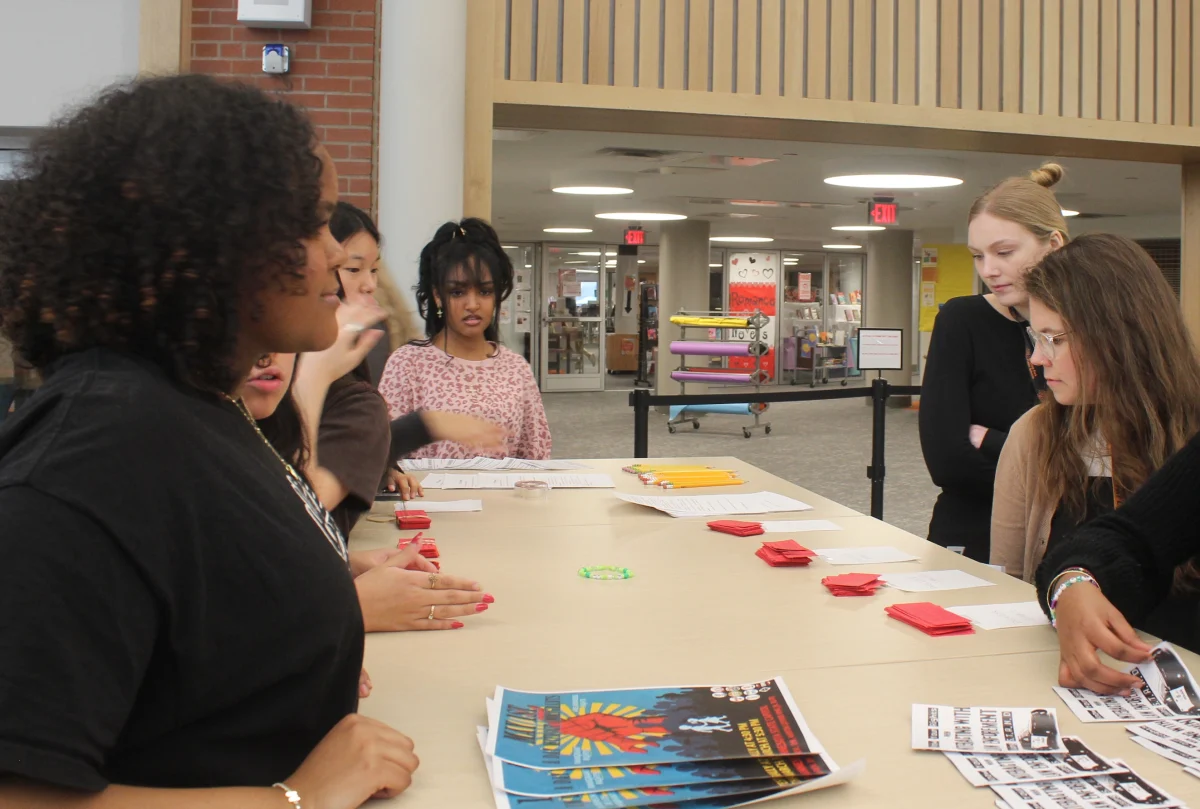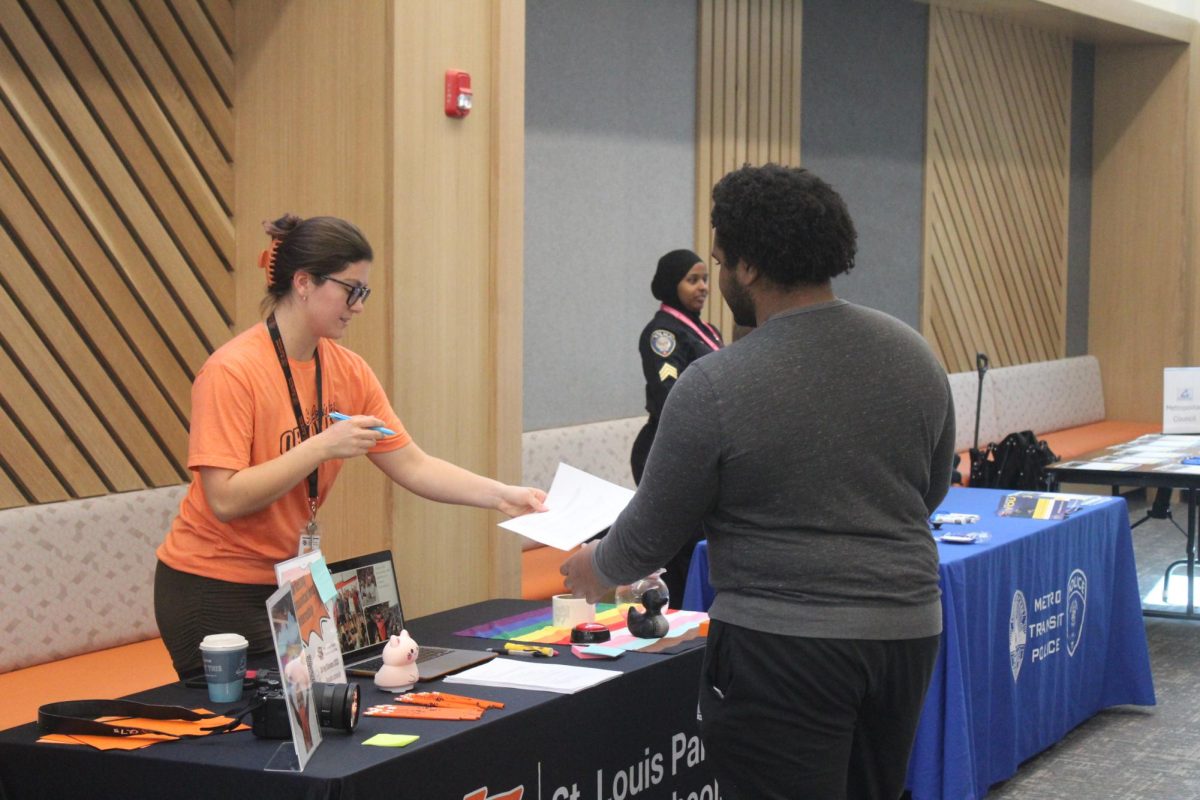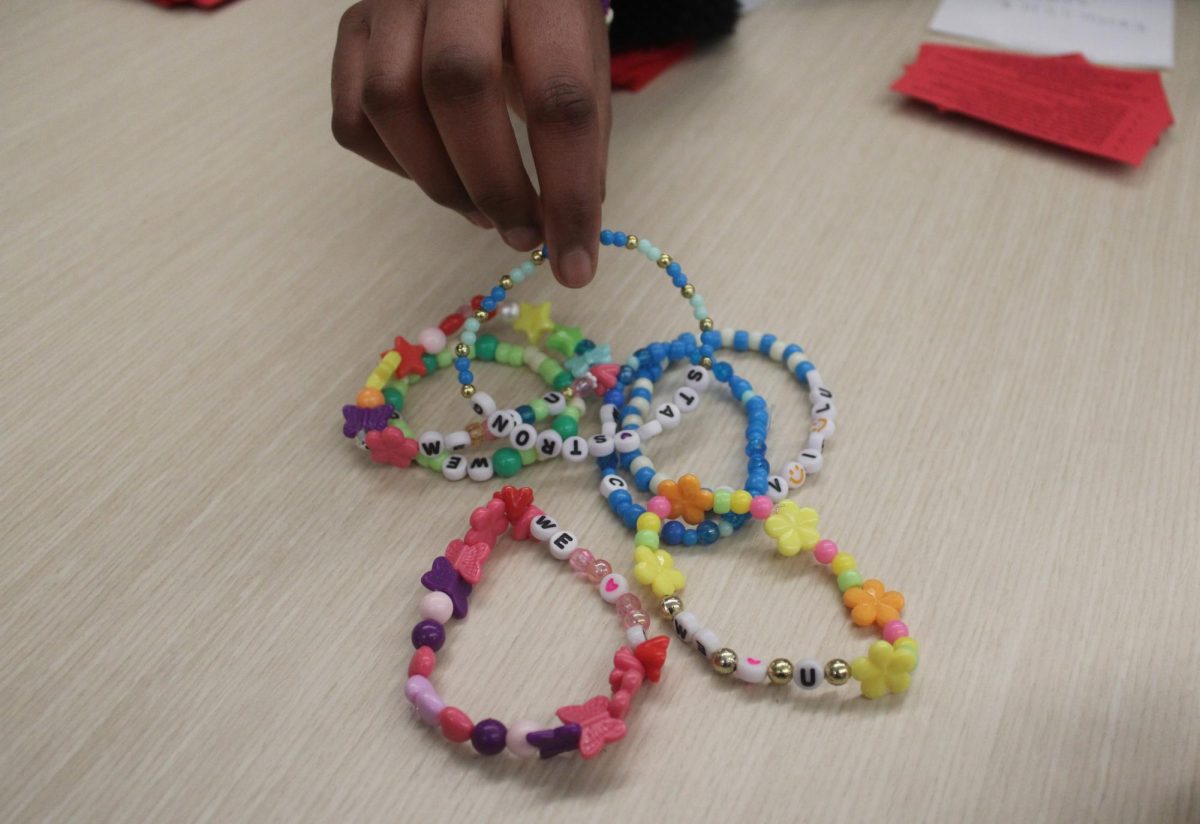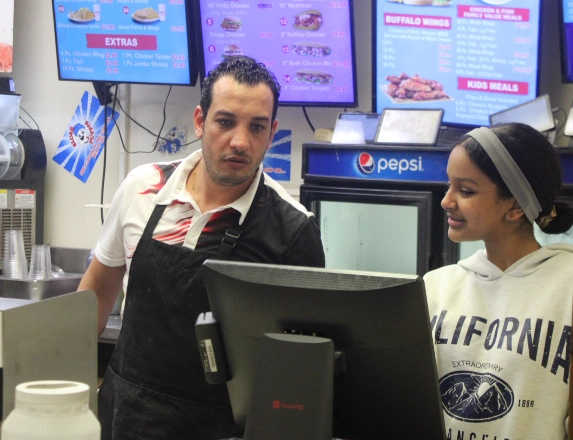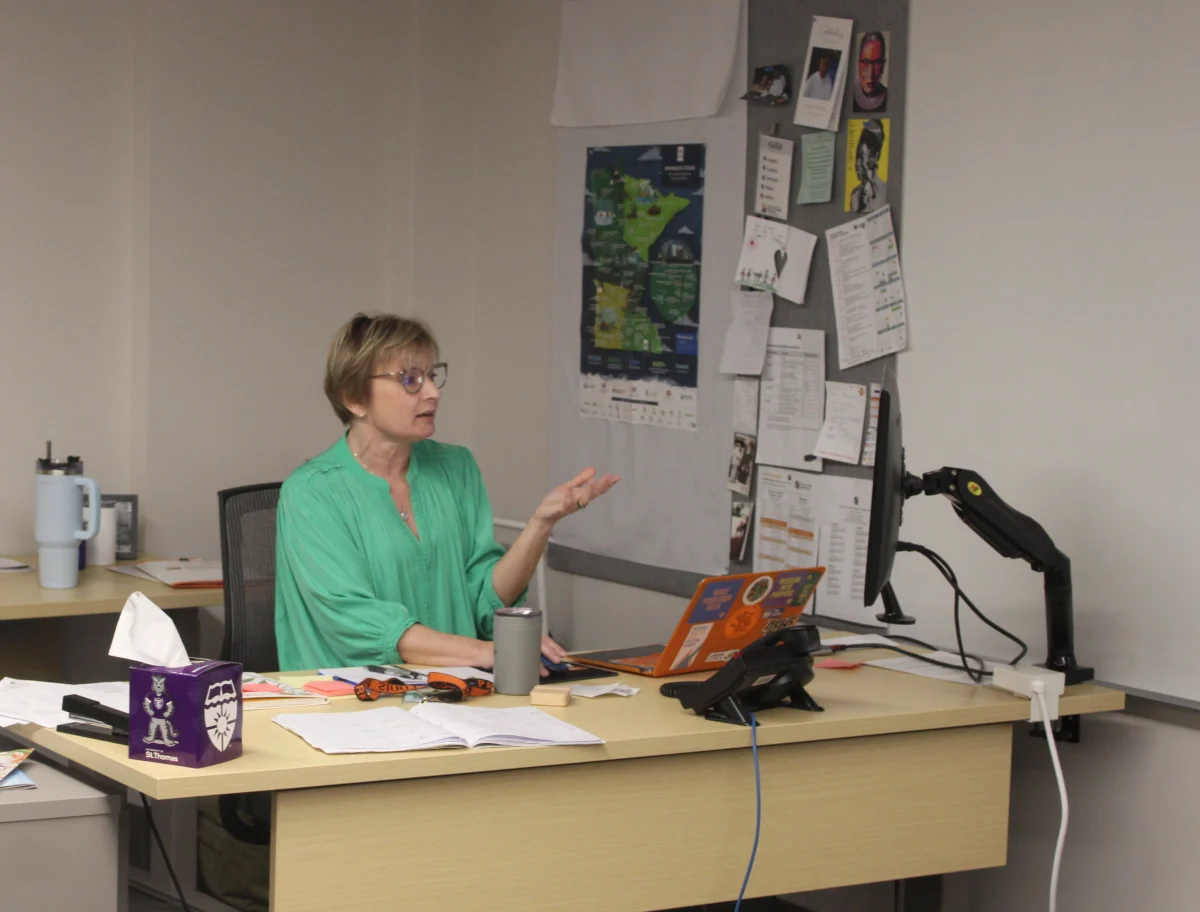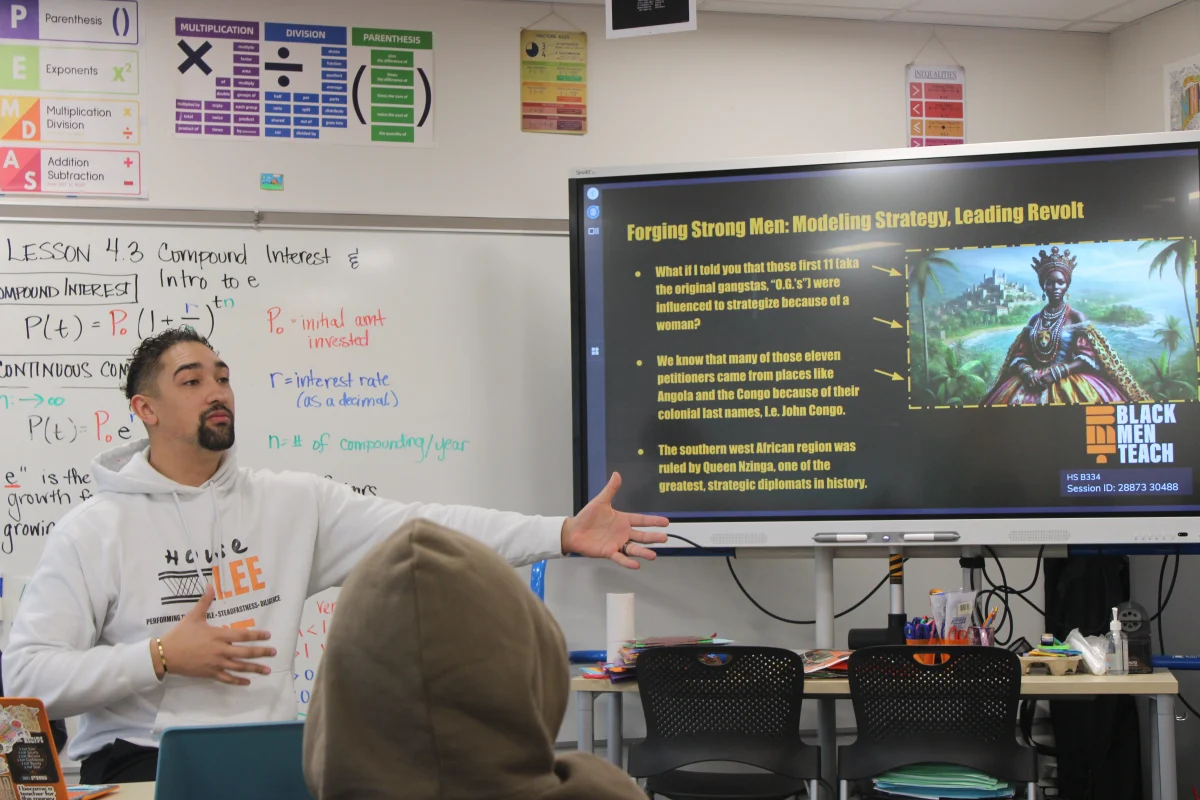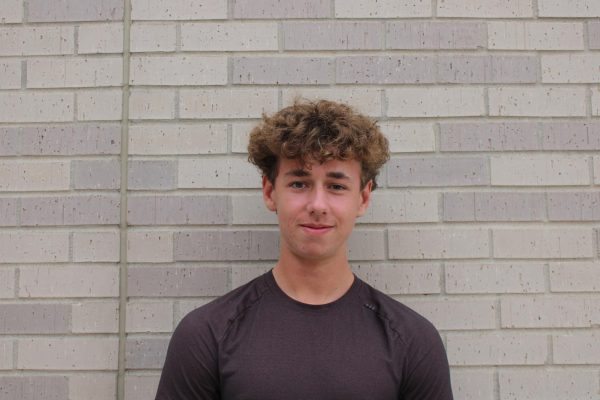As the first quarter of the 2024-25 school year comes to a close, students in French teacher Kyle Sweeney’s class have a French assignment to round out the end of the quarter. Sweeney said she’s done this for her whole teaching career—17 years. In this required summative assignment, students choose between a list of tasks and complete enough of them to get 25 points. Each one is worth a certain amount of points that differ based on the task.
According to Sweeney, many students do it just for the points and do the minimum. Most students do the same popular activities, but there’s a combination of how well students complete the assignments.
“Students do mostly the same activities, there are certain popular ones: watching a movie, doing current events, finding YouTube videos, a podcast or something (else). The cooking one is popular,” Sweeney said. “From time to time, I’ll have a student go to the (Minneapolis Institute of Art) and see French art or something (else), and if a student goes out of their comfort zone with it, that’s bringing more value to them. Many students do it as a regular assignment from school, where they put in minimal effort to get the points, and that’s it. So it’s a mix.”
According to senior Estella Hughes, she does the assignment for points, but she said she enjoys learning about the culture because it’s not something the class learns about often.
“I do it more for the points, but I do enjoy learning about the culture as well,” Hughes said. “We don’t cover these or every subject in the class period.”
Junior Ashton Molitor said he does the assignments for the learning rather than the points. He said he said the assignment helps him understand French better.
“It’s definitely the actual learning and just setting it all up and having fun with it,” Molitor said. “It shows you if you were to go (to) France, what you would do if you were there.”
Hughes said the assignment is productive and helps her be aware of the current events in France or just what’s going on at that time because of the numerous articles she summarizes.
“This is pretty effective, at least the way I do it. I normally do the articles about French culture and current events,” Hughes said. “It helps me understand what’s going on in France at that time period.”
According to Molitor, it’s an effective assignment. He said he’s done different assignments on the sheet to help increase his understanding of French.
“This assignment is effective in my opinion. What helped me out was speaking French to an adult, or making a French recipe,” Molitor said. “Also listening to music and podcasts in French is helpful.”
According to Hughes, it strengthens her knowledge of current events. She said she learned more in addition to this from this assignment.
“I feel like it helps reinforce what I know about French culture (already),” Hughes said. “I learn more about the current events in France and their politics especially regarding immigration and overseas territories.”
According to Sweeney, it’s effective and an interesting assignment to try something new. She said cultural experiences are what she cares about, but points are most likely the motivation for students to do the assignment and do it well.
“It gives students a chance to earn summative points differently. Points matter a lot to students, points don’t really matter to me,” Sweeney said. “But cultural experiences matter to me. So that might be a reason for someone to do it. I’m saying it’s worth something. It shows that you experienced something, which is why I make it a summative. I know some kids don’t like to do it, but my hope is that even if they don’t, they’ll discover something, they’ll try something. Maybe they’ll see a movie they wouldn’t have seen before. Or a lot of kids cook something – a French recipe. Maybe that is an experience they wouldn’t have done before. Little things, like reading an article about French culture, they might not want to (do), but hopefully, they would’ve gotten something out of it.”



